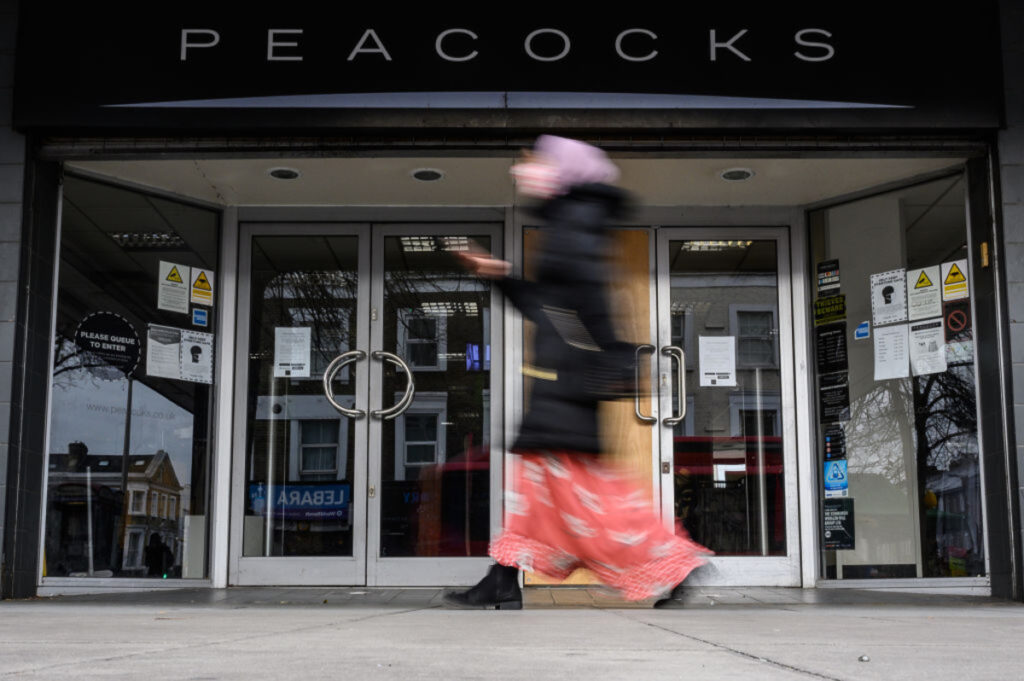
Peacocks has clawed its way back to profit after shedding hundreds of jobs, newly-filed documents have revealed.
The high street retailer, which was saved from administration in a buyout in 2020 and is now headquartered in Manchester, shrunk its retail staff from an average of 3,480 to 3,277 in the following 12 months.
Its financial results for the year ended February 25, 2023 – which have just been filed around eight months after the deadline – also revealed that Peacocks had returned to the black for the first time since the pandemic, making a pre-tax profit of £14.6m during the year.
This was compared to a pre-tax loss of £16.7m in the year ended February 26, 2022, according to a document which has just been published more than 20 months after the deadline.
This return to the black came as Peacocks grew its turnover to £238m in the 12 months ended February 25, 2023, up from just under £160m in the year before.
These are the first results Peacocks has published since it was saved from collapse by a buyout in 2020, which saw a consortium of managers purchase the full company, its employees and all of its stores.

In a statement published to Companies House, Peakcocks said: “The challenges in the UK high street have been widely reported and whilst the company has not been immune to the market trends of lower footfall and the continually increasing consumer appetite for online shopping solutions the board is confident that the business is well placed to make the best of the current trading environment given its diversified portfolio of store formats, covering a wide demographic.
“Peacocks continues to meet the needs of its traditional customer base with the fashion retail of clothes and accessories and has seen some success with its strategy of developing ranges attractive to different age groups.
“The main customer profile is the cost conscious mum shopping for herself and her family and the strategy continues to be to offer great value across the ranges.”
Peacocks’ 2021 rescue deal
Peacocks was rescued from administration after being bought by an investment consortium in April 2021, saving around 2,000 jobs.
Edinburgh Woollen Mill (EWM) Group, the retail empire owned by billionaire businessman Philip Day, agreed to support the sale of its high street brand.
EWM Group said it had backed a bid by an international investment consortium, led by Edinburgh Woollen Mill COO Steve Simpson, to rescue the retailer from administration.
The transaction, negotiated by Peacocks’ administrator FRP, saved 200 of its more than 400 stores, 1,850 store staff and 150 head office jobs.
During the pandemic and leading up to EWM’s collapse, Peacocks shut down 200 stores – around half its estate – and made 2000 redundancies as it struggled to manage under the various restrictions.
Peacock also had a poor online presence compared with rivals and – along with Arcadia Group and Debenhams – struggled to recoup business through its websites, leading to its collapse.
This article has been amended to reflect updated documents filed with Companies House after the original jobs figures were incorrectly stated in the financial accounts.



